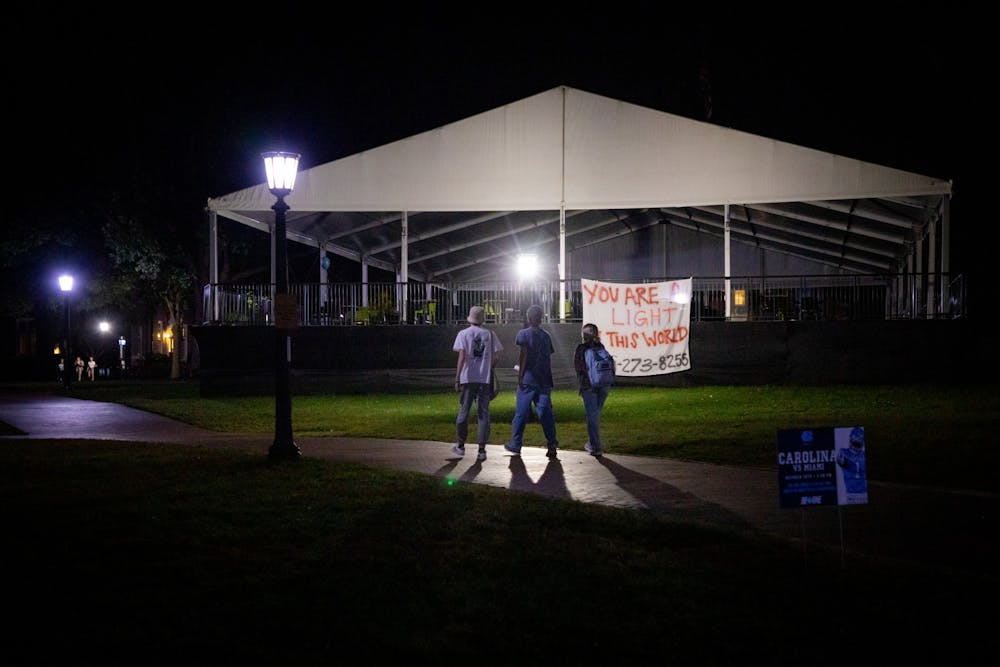“Some would think that we're back in person, it'd be much easier to hang out with friends, but we're forgetting a huge population of freshmen and sophomores and even juniors who weren't on campus these past couple of years,” Shah said.
This semester, students seeking ongoing individual counseling at Counseling and Psychological Services were placed on a waitlist for the first time in 14 years, according to CAPS Associate and Clinical Director Avery Cook.
A few weeks after multiple student deaths on campus — and in response to increased student mental health needs during the pandemic — CAPS announced a partnership with teletherapy service UWill to eliminate the waitlist for brief individual therapy.
“There is no waitlist for any student that is appropriate for brief therapy,” Cook said in a November interview with The Daily Tar Heel. “They're able to get connected really as soon as we meet with them."
But some students are concerned about options for longer-term care, within CAPS and beyond.
First-year Belamy Counou said she began seeing a CAPS therapist at the beginning of the semester. She said her experience started out great when the conversation centered on school-related issues. But by the end, she just felt like a name on a piece of paper.
"I was opening up more, and then we get to my fourth session and she's telling me that she thinks I'm doing well — I was not doing well," Counou said.
Counou said that gradually she began talking to her therapist about more serious mental health topics. Then, her therapist canceled their final appointment and never got in contact to check in or reschedule. The idea of a referral to a long-term therapist at an outside practice was never discussed, she said.
The CAPS website states that it offers brief therapy for “issues that are relatively well defined and which can be adequately addressed or resolved in a brief time frame.”
Cook said in a statement through UNC Media Relations that CAPS never turns away a student in crisis, regardless of the type of care they may need.
CAPS is designed to be a first step in the overall process of identifying the kind of help a student needs, either immediately or long term, Cook said. CAPS has a range of services available to students — from one-on-one and group therapy to medication management and referral coordination.
Shah said she thinks CAPS has been doing the best they can with the limited resources they have, but it is important to continue exploring additional therapists with an identity-based or lived-experienced-based focus — and to consider options beyond CAPS, like faculty mentors.
To get the day's news and headlines in your inbox each morning, sign up for our email newsletters.
CAPs hired two AAPI counselors in August after a student petition circulated last spring to increase the representation of providers who identify as Asian American and Pacific Islander. CAPS previously had none.
“The lack of services is not just a UNC issue,” Hussong said. “It's not just a North Carolina or U.S. issue — it's global.”
Looking forward
In response to growing rates of anxiety and depression among the campus community, UNC hosted a Mental Health Summit on Nov. 15 with a series of discussions focused on campus culture, crisis services and prevention.
At the summit, UNC announced its partnership with the JED Foundation, a nationally-recognized resource center that provides access to experts and will aim to improve the University’s ability to prevent and respond to mental health issues. The University plans to be officially designated as a JED campus in February 2022.
Chancellor Kevin Guskiewicz said that he also expects to include at least one wellness day on the spring semester calendar during a Faculty Council meeting on Nov. 5.
Counou said that it’s important that mental health resources — CAPS or otherwise — are visible and available before students reach a breaking point.
“It's really okay to not be completely 100 percent where we were two years ago and it's okay to never be back to where we were two years ago,” Shah said. “It's really important to just be where you are right now and just listen to yourself right now.”
Mental health resources
If you or someone you know is thinking about suicide, the National Suicide Prevention Lifeline, 1-800-273-8255, is available 24/7. It is free and confidential.
UNC students who need assistance during this time may contact Counseling and Psychological Services, the Office of the Dean of Students or Student Wellness. CAPS can be reached 24/7 by phone at 919-966-3658. University employees can reach out to the Employee Assistance Program.
Peer supporters from the student-run organization Peer2Peer, which offers mental health resources for graduate and undergraduate students, can be reached through its online form. Students can choose to remain anonymous.
Resources have also been compiled by the DTH Editorial Board.
@hannahgracerose
university@dailytarheel.com




